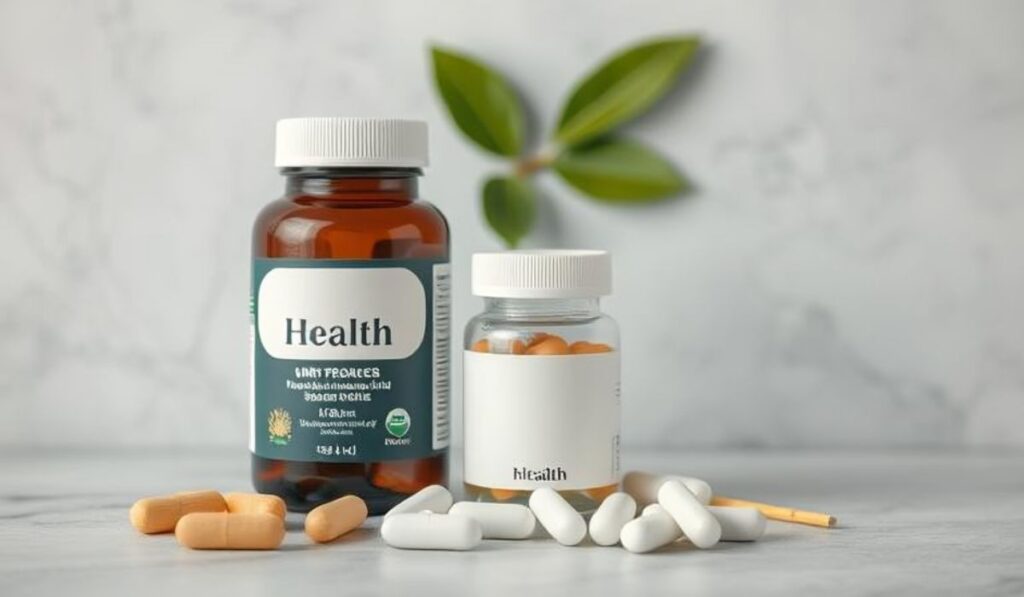Walk down any pharmacy aisle or scroll through wellness influencers’ feeds, and you’ll encounter a dizzying array of health supplements promising everything from boundless energy to immunity superpowers.
The global supplement industry, valued at over $150 billion, thrives on the allure of quick fixes for modern health woes.
But here’s the burning question: Do all these pills, powders, and potions actually work? Let’s dissect the science, regulations, and myths to uncover the truth.

The Supplement Spectrum: What’s in Your Pill?
Supplements fall into four broad categories, each with varying levels of evidence behind their claims:
1. Vitamins & Minerals
- The Good: Essential for those with deficiencies (e.g., vitamin D for indoor dwellers, iron for anemics). Studies show folic acid in pregnancy reduces birth defects.
- The Overhyped: Vitamin C’s cold-fighting reputation? Research suggests it may shorten symptoms slightly but won’t prevent illness. Mega-doses of fat-soluble vitamins (A, D, E, K) can even cause toxicity.
Also Read: Top 10 Essential Vitamins Your Body Needs Daily
2. Herbal Supplements
- The Good: St. John’s Wort shows modest benefits for mild depression (but interacts dangerously with antidepressants). Peppermint oil may ease IBS.
- The Murky: Echinacea’s cold prevention claims remain hotly debated. Many herbal products lack standardization, leading to inconsistent potency.
3. Protein & Fitness Boosters
- The Good: Whey protein aids muscle recovery post-workout. Creatine is backed by decades of research for strength gains.
- The Meh: Branched-chain amino acids (BCAAs) show minimal edge over dietary protein.
4. Specialty Supplements (Probiotics, Fish Oil, Collagen)
- The Good: Specific probiotic strains (e.g., Lactobacillus) can improve gut health. Omega-3s may lower triglycerides.
- The Mixed: Collagen’s beauty benefits? Early studies suggest modest skin hydration boosts, but long-term joint benefits are unproven.
The Regulation Gap: Buyer Beware
Unlike pharmaceuticals, supplements aren’t FDA-approved for safety or efficacy before hitting shelves. The FDA only steps in post-complaint, leading to issues like:
- Mislabeling: A 2023 study found 40% of herbal supplements contained fillers or contaminants.
- Exaggerated Claims: Terms like “boosts immunity” or “supports brain health” are often marketing fluff without rigorous proof.
When Are Supplements Necessary?
They shine in specific scenarios:
- Deficiencies: Iron for anemia, B12 for vegans.
- Life Stages: Prenatal vitamins with folate for pregnancy.
- Medical Conditions: Calcium/Vitamin D for osteoporosis.
For the average person eating a balanced diet? Likely unnecessary.
The Hidden Risks
- Overdose Risks: Excess vitamin A causes liver damage; too much iron leads to toxicity.
- Drug Interactions: Ginkgo biloba can thin blood, complicating surgery.
- False Security: Swallowing a multivitamin doesn’t offset a fast-food diet.
Smart Supplement Strategies
- Test, Don’t Guess: Ask your doctor for deficiency tests before starting anything.
- Third-Party Verification: Look for NSF, USP, or ConsumerLab seals for quality assurance.
- Food First: Spinach beats a magnesium pill; salmon trumps fish oil capsules.
- Research Brands: Opt for reputable companies transparent about sourcing.
Conclusion: Supplements ≠ Magic Beans
The myth that all supplements work is officially busted. While some offer targeted benefits, others are expensive urine additives—or worse, harmful. True health thrives on whole foods, movement, and sleep, not shortcuts in a bottle. Before jumping on the latest supplement craze, consult a healthcare pro and remember: there’s no substitute for a nourishing lifestyle.